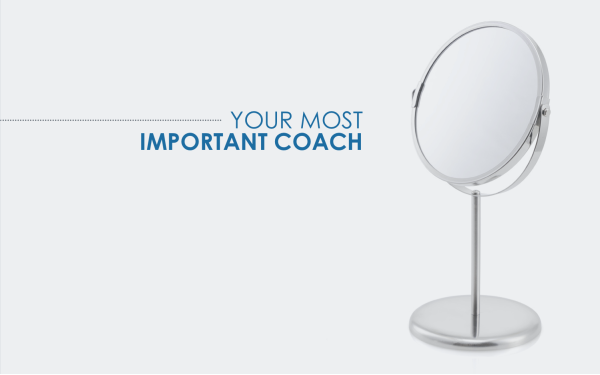The following is a direct excerpt from my recently published book, Coach Your Self Up.
Odds are, you have at least one person in your life that you would consider some form of coach. This might be a friend, a colleague, a family member, a boss, etc. And maybe you have been fortunate enough to work with a professional coach in some capacity.
Coaches are helpful in many ways. When I ask people what they see as attributes of a good coach, common responses include:
- “He encourages me to pursue my goals.”
- “She helps me to look at different perspectives.”
- “He cares about me and my well-being.”
- “She challenges my thinking.”
- “He helps me find the answers that are already within me.”
- “She supports me in becoming a better me.”
Of course, there are many other attributes of good coaches, but this is a solid list. And as a professional coach, I believe it is of great value for you to have one or more coaches in your life.
That said, who do you talk to more than anybody else? This is not a trick question, and to the best of my knowledge, the answer is the same for all or almost all of us. We talk to ourselves more than anybody else. (And for those of you hearing that voice inside your head that’s saying, “I don’t know what he’s talking about.” That’s the self-talk I am referring to.)
You are your most important coach.
This is often an overlooked and hence under-utilized internal resource or capability.
How cool would it be to cultivate an inner coaching voice to bring to some of those conversations you already have with yourself?
To encourage you.
To challenge you.
To help you see different perspectives.
To help you become a better you.
That, in a nutshell, is what Coach Your Self Up is all about.
This is not about replacing the other coaches in your life. The ability to coach one’s self is simply additive to this mix. In fact, while a bit oxymoronic, the most effective self-coaching will involve the support of others.
